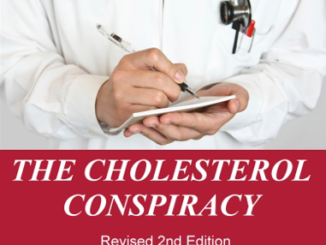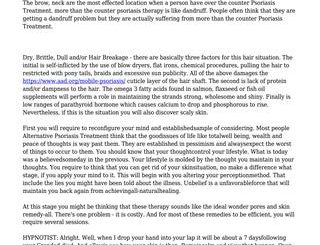
A number of alternative medical advocates believe that yeast overgrowth is a systemic disease and the cause of many diverse, and non specific symptoms other than the apparent, typical symptoms of vaginal thrush, oral thrush and yeast skin infections. They have postulated the conspiracy theory relating to yeast overgrowth syndrome.
The collective name given to this group of non specific symptoms is yeast overgrowth syndrome, Candida hypersensitivity syndrome, yeast allergy, or gastrointestinal yeast overgrowth.
People who suffer from the overgrowth of yeast are most likely to be affected by toxins released by the yeast itself. Such toxins include ethanol and acetaldehyde which have a mild narcotic effect. These toxins, while produced in the bowel, can be absorbed into the bloodstream and affect the brain function, causing a variety of symptoms such as memory loss, a feeling of vagueness, irritability, moodiness, dizziness, spots in the vision or ringing in the ears.
These toxins negatively impact our cells by making it difficult for the white blood cells to fight infection, resulting in rashes, acne and the slowing of the healing process. It also affects the red blood cells ability to flow into capillaries, resulting in migraines, fatigue and muscle aches.
The following list includes many non specific symptoms thought to be caused by yeast overgrowth syndrome:
– abdominal bloating
– reflux and gas
– diarrhoea
– constipation
– migraines
– headaches
– asthma
– ADH
– bad breath
– premenstrual tension
– muscle pain or stiffness
– fatigue
– depression
– psoriasis
– sexual dysfunction
– food intolerances
– and much more
Often these symptoms appear even when there is no clinical sign of Candida albicans, the most common cause of this overgrowth syndrome. While these sub-clinical infections and symptoms are not medically recognised conditions, treatment for systemic yeast overgrowth in these individuals has lead to permanent relief from symptoms.
Keep in mind that just because you do not have the symptoms of obvious yeast infection such as thrush, that this does not imply that you do not have yeast overgrowth. Thrush is just an external symptom, and you may be affected in other areas.
Some people become allergic to yeast and an allergic response can be triggered by the low number of yeasts which reside normally on your body. This is called Candida hypersensitivity syndrome or yeast allergy. Just if you had a allergic reaction to strawberries or penicillin your body will react by setting up either local or systemic inflammations causing any number of symptoms such as redness, itching, rashes, swelling or more serious symptoms.
With Candidiasis now affecting up to one third of the population, and the majority of the population at risk with up to 80-90% harboring the yeast Candida, why don’t doctors diagnose yeast overgrowth syndrome as a cause of many common symptoms and illnesses? Because there has been no action, the alternative medical proponents have suggested the possibility of a conspiracy theory.
There are many conspiracy theories about this subject, but these have not been readily accepted by the medical fraternity. There has not been sufficient medical research done on this matter. This has lead to the conspiracy theory related to yeast overgrowth especially since medical universities and medical reviews that bring doctors up to date are funded and controlled primarily by the large pharmaceutical corporates who are focused on the profits from the sale of their medications. If you look at an average medical review you will see that up to two thirds is dedicated to pharmaceutical products.
By prescribing a pharmaceutical cream or ointment for a yeast infection such as thrush, doctors see immediate results with their patients. But if treatment fails to cure the symptoms or if the symptoms recur, then the doctor may take samples to confirm the diagnosis and to check that the patient is not suffering from a more serious underlying disease such as diabetes. There is an issue with treating the symptoms and not finding out what the root cause of the infection is, because the yeast infection will come back in time. If you use the same medication again and again, the Candida may mutate and become resistant to the medications prescribed.
In a number of countries several of the medications available for yeast overgrowth can be bought over the counter and this has set up a culture where people self diagnose and treat their own Candida infections. There is a risk that the yeast infection is not properly diagnosed and treated correctly. It has also lead to commercial advertising of pharmaceutical medications to treat yeast infections.
Most doctors know about the alternative methods of treating and controlling yeast infections such as thrush. However they have been trained to follow standard protocols for the treatment of these infections. These protocols, in the main, have been established by the medical fraternity and have been confirmed by scientific research.That does not imply that doctors will not assist you to find some natural treatments for controlling recurrent thrush.
If you believe you are suffering from yeast overgrowth syndrome it is important to do research to find out more about this disease and the rationale behind the conspiracy theory suggested by these alternative medical proponents. You can talk to your doctor or do research on the internet. However the best proof is in the cure. Treat your Candida infection and see if your other non- specific symptoms disappear at the same time. It cannot hurt you and may even do you some good.
Proudly WWW.PONIREVO.COM
by M B Laloli



